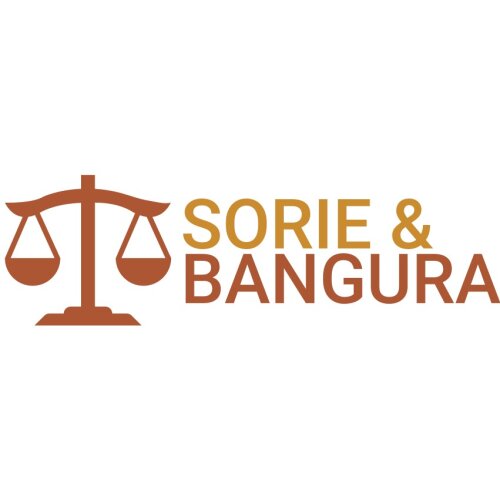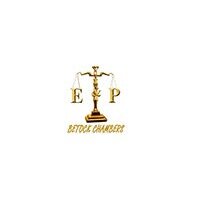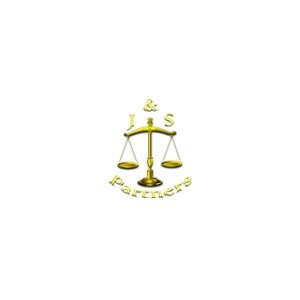Best Brokerage Lawyers in Freetown
Share your needs with us, get contacted by law firms.
Free. Takes 2 min.
Free Guide to Hiring a Real Estate Lawyer
List of the best lawyers in Freetown, Sierra Leone
About Brokerage Law in Freetown, Sierra Leone
Brokerage law in Freetown, Sierra Leone, governs the activities of brokers, who act as intermediaries between buyers and sellers in trade, financial services, or real estate transactions. The brokerage industry is essential to the economy, facilitating deals and ensuring compliance with local and international regulations. Brokers in Sierra Leone must navigate a complex web of laws and regulations designed to ensure fair trading practices, protect consumer rights, and prevent fraud.
Why You May Need a Lawyer
Engaging in brokerage activities can often involve intricate legal issues due to the nature of transactions and the significant financial interests involved. Here are some common situations where you might require legal help:
- Negotiating brokerage agreements or reviewing contracts to ensure they align with legal standards and best practices.
- Resolving disputes with clients or other brokers regarding commissions or service delivery.
- Understanding compliance requirements under local and international trade laws.
- Facing allegations of fraud or misrepresentation while acting as a broker.
- Navigating regulatory requirements and obtaining necessary licenses or permits.
Local Laws Overview
In Freetown, specific laws govern brokerage activities, and brokers must comply with both local regulations and broader national legal frameworks. Key aspects include:
- Registration and Licensing: Brokers must register with relevant authorities and maintain appropriate licenses to operate legally.
- Consumer Protection Laws: Regulations ensure brokers conduct transactions transparently and fairly, protecting clients from fraudulent activities.
- Contractual Obligations: Agreements between brokers and clients must adhere to contract laws to be enforceable and protect both parties' interests.
- Tax Compliance: Brokers must comply with local tax laws, including filing accurate returns and paying applicable taxes on income.
- Dispute Resolution: There are established legal procedures for resolving disputes, which may involve arbitration or court proceedings.
Frequently Asked Questions
What qualifications are required to become a broker in Freetown?
Prospective brokers need to meet educational qualifications, undergo training, and obtain a brokerage license from the relevant regulatory authority.
How can I verify if a broker is licensed in Sierra Leone?
You can verify a broker's license by checking with the regulatory bodies like the Bank of Sierra Leone or the Sierra Leone Investment and Export Promotion Agency (SLIEPA).
What are my rights if a brokerage transaction goes wrong?
You have the right to seek legal recourse, which may involve arbitration or litigation to resolve disputes and seek compensation.
Are there specific laws regulating real estate brokerage?
Yes, there are specific regulations that address real estate transactions, ensuring brokers conduct business according to legal standards.
Do brokers need to comply with anti-money laundering regulations?
Yes, brokers must comply with anti-money laundering and counter-terrorism financing regulations to minimize illegal activities.
What is the typical process for filing a complaint against a broker?
Complaints can be filed with regulatory bodies or through civil courts, depending on the nature and severity of the issue.
Can a broker operate without a license?
Operating without a license is illegal and can lead to penalties, including fines and imprisonment.
How are disputes between brokers and clients typically resolved?
Disputes are often resolved through negotiation, mediation, or arbitration, with litigation being a last resort.
What is the role of the Sierra Leone Stock Exchange in brokerage activities?
The Stock Exchange oversees the trading of securities, and brokerage firms must be registered to trade on behalf of clients.
What are the tax implications for brokers in Sierra Leone?
Brokers must comply with local and national tax laws, reporting income accurately and paying any taxes due.
Additional Resources
For further information or assistance, consider reaching out to the following resources:
- The Bank of Sierra Leone: Regulates financial institutions and ensures compliance with monetary laws.
- Sierra Leone Investment and Export Promotion Agency (SLIEPA): Offers guidance and oversight for investment and trade activities.
- Chamber of Commerce: Provides support and networking opportunities for brokers and businesses in various sectors.
Next Steps
If you need legal assistance in brokerage matters, consider taking the following steps:
- Consult with a qualified legal professional specializing in brokerage law, who can offer personalized advice and representation.
- Gather all relevant documents and information related to your brokerage concerns for a comprehensive consultation.
- Stay informed about changes in local laws and regulations affecting the brokerage industry in Sierra Leone.
- Engage with industry associations and regulatory bodies for support and resources.
Lawzana helps you find the best lawyers and law firms in Freetown through a curated and pre-screened list of qualified legal professionals. Our platform offers rankings and detailed profiles of attorneys and law firms, allowing you to compare based on practice areas, including Brokerage, experience, and client feedback.
Each profile includes a description of the firm's areas of practice, client reviews, team members and partners, year of establishment, spoken languages, office locations, contact information, social media presence, and any published articles or resources. Most firms on our platform speak English and are experienced in both local and international legal matters.
Get a quote from top-rated law firms in Freetown, Sierra Leone — quickly, securely, and without unnecessary hassle.
Disclaimer:
The information provided on this page is for general informational purposes only and does not constitute legal advice. While we strive to ensure the accuracy and relevance of the content, legal information may change over time, and interpretations of the law can vary. You should always consult with a qualified legal professional for advice specific to your situation.
We disclaim all liability for actions taken or not taken based on the content of this page. If you believe any information is incorrect or outdated, please contact us, and we will review and update it where appropriate.













